Free childcare demand stretches nurseries
- Published
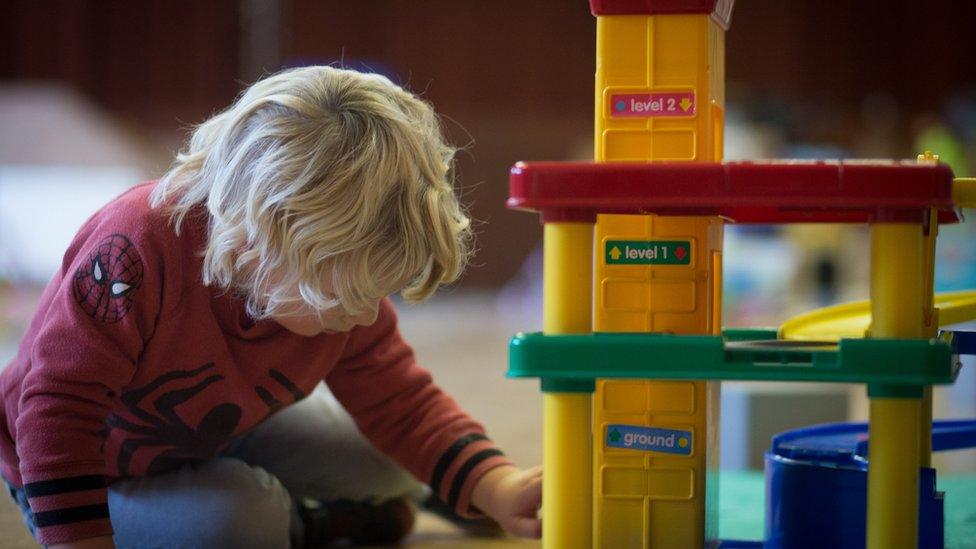
Some nurseries are concerned about the costs of implementing 30 hours of free childcare.
Nursery providers are warning high demand for a new free 30-hour childcare scheme and rising costs will mean many nurseries will "go bust".
A pilot scheme in England that allows parents to claim free childcare for three and four-year-olds has seen take-up rates of over 80%.
Nurseries say rising staff costs and inflation will force many providers to close.
The government says it is investing a "record £6bn in childcare".
The Conservatives' promise to double the amount of free childcare that parents in England can claim has proved very popular in pilot areas.
Nursery providers are concerned that the money being offered by the government to provide the service will not cover the rising costs of looking after the children.
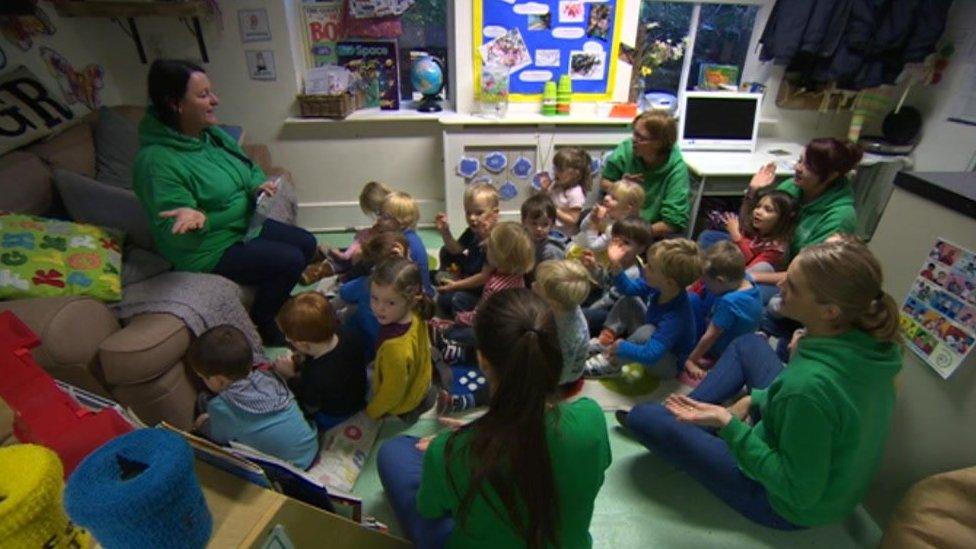
Councils currently running a pilot scheme say the 30 hour free childcare initiative is very popular with parents
In Harrogate, 90% of providers have told the BBC they will not offer 30 hours free childcare in 2017 unless the funding proposals are changed.
"We'll go bust under the current proposals," says Josy Thompson, a nursery owner.
Providers in the North Yorkshire town say the cost of providing the care is £4.50 an hour per child, but that the government subsidy will only cover £3.40 of that.
Eight areas of England have been trialling the 30-hour scheme since September, with the majority of councils involved reporting take-up rates of over 80%.
"It's a great idea and some parents have seen their weekly childcare bills cut from £425 to £85 a week.", says Vanessa Warn, who owns three nurseries in York - one of the pilot areas.
Nurseries say introducing a living wage for their staff and a general rise in inflation will mean the proposed £6bn a year in funding for the scheme will not keep pace with their rising costs.
"The government want us to deliver a champagne nursery service for lemonade prices," added Ms Warn.
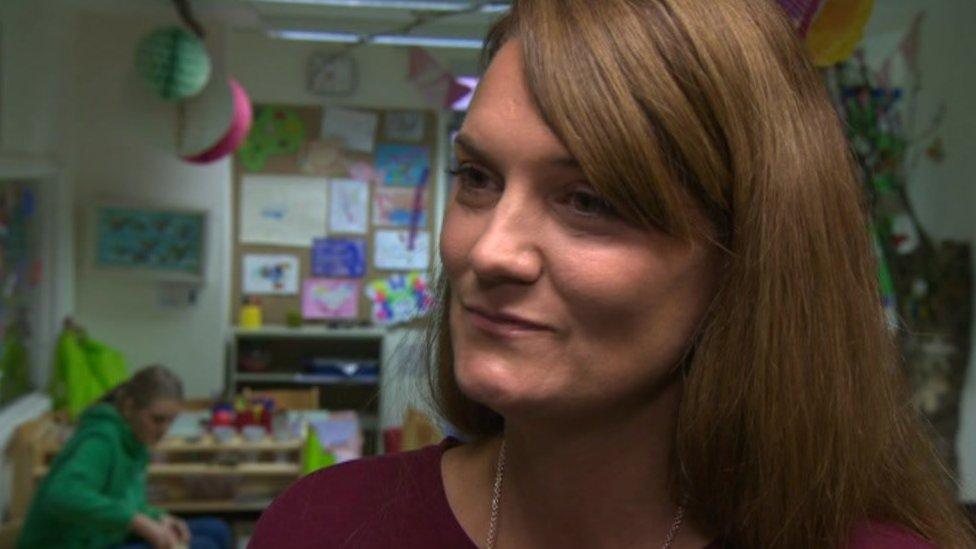
Nursery owner Vanessa Warne says parents in York have already seen big falls in the childcare bills because of the new policy

What we know so far about the pilot scheme
It's being piloted in Wigan, Staffordshire, Swindon, Portsmouth, Northumberland, York, Newham and Hertfordshire
Over 3,500 children are currently being looked after
Councils in Staffordshire, Northumberland, York, Hertfordshire and Newham report more than 80% of eligible households have taken up the offer of 30 hours of free childcare
York is the only area where the scheme is open to all households with eligible children
More than 95% of all parents currently take advantage of 15 hours of free child care a week for three and four-year-olds
From September 2017, parents working more than 16 hours a week and earning less than £100,000 a year will be able to claim an additional 15 extra childcare hours.

The government says it has provided an extra £300m a year to boost the average hourly rate paid to providers across England to £4.88 per hour from £4.56.
As part of the scheme, nurseries are allowed to charge parents for some "additional services" like food and special events.
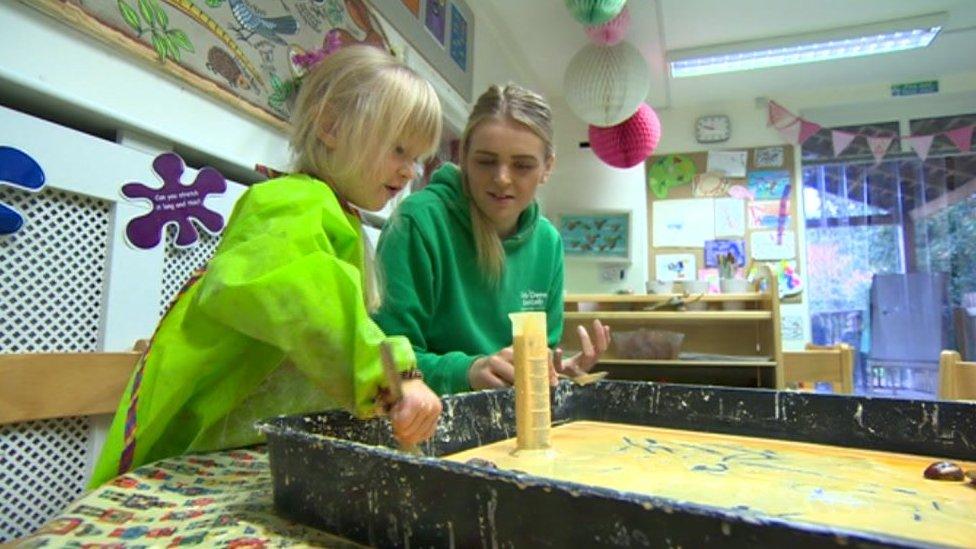
There are concerns that without extra funding some nurseries will face closure.
"It's great that so many parents want to take advantage of this scheme but the government has got to listen to people on the frontline" says Clare Schofield from the National Day Nurseries Association
The government hopes that by offering parents 30 hours of free childcare more adults will return to the workforce or look to increase their hours.
The Office for National Statistics estimates that there are 1.9 million people in England who choose not to work because they are instead looking after their family.
A Department for Education spokesperson said: "We've had huge demand from local areas to take part in delivering our 30-hour offer a year early and we are working with the eight areas that were chosen to get the delivery of our offer right so we can hit the ground running in September 2017."
- Published26 August 2016
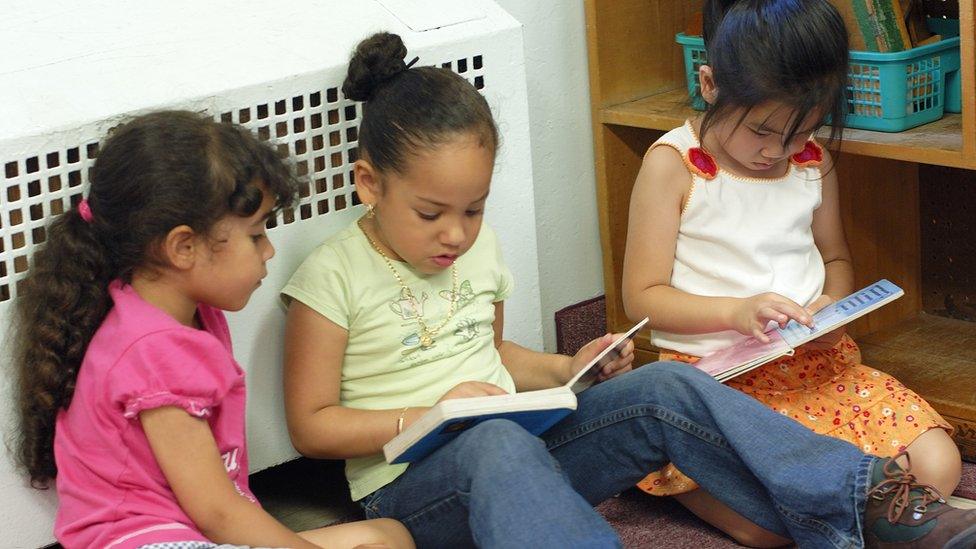
- Published15 June 2016
